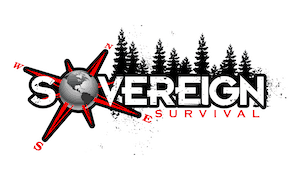The internet has become the backbone of modern life, powering everything from communication and commerce to education and emergency services. But what happens when it’s suddenly unavailable? Whether due to natural disasters, government censorship, or economic collapse, losing internet access is not just inconvenient—it’s a loss of power and control over the information we depend on every day. It’s a vulnerability we can’t afford to ignore.
In recent years, the world has seen a dramatic rise in internet shutdowns. Over 750 deliberate shutdowns have been reported globally in just eight years. Governments in countries like China, India, and others frequently cut off access to suppress political dissent, control elections, or maintain their grip on power. While it may feel like such events are far removed from the West, we are not immune. Economic instability, natural disasters, or targeted actions against individuals or groups could just as easily disrupt the internet we rely on.
The unsettling truth is that we don’t truly own the information our lives revolve around. Most of it exists on centralized systems controlled by governments or corporations. This leaves us vulnerable to censorship, surveillance, and even data erasure. The question then becomes: How can we take back control and ensure access to critical information, even when the internet is down?
One solution lies in decentralization, and tools like the Gridbase Pocket are leading the way. This compact device acts as a personal, off-grid internet that works even when traditional infrastructure fails. It’s like carrying the power of the web in your pocket. Pre-loaded with over 50,000 books, medical journals, survival manuals, and even Wikipedia pages, the Gridbase Pocket ensures that essential knowledge is always accessible.
The device creates its own mini Wi-Fi network, allowing smartphones, laptops, and other devices to connect and navigate its contents like a regular website. You can search for topics, click links, and even access videos and music—all without needing cell service or an internet connection. It’s an invaluable tool for anyone concerned about maintaining access to critical information during emergencies.
Of course, digital solutions aren’t the only answer. Backup power sources, such as portable solar chargers or battery packs, are essential for keeping devices like the Gridbase Pocket running. Non-digital backups, like printed survival guides, field manuals, and medical handbooks, are also crucial. They provide an additional layer of security in case technology fails.
Decentralizing information is about more than just convenience—it’s about empowerment. By creating your own cache of knowledge, you reduce dependence on external systems and ensure that you remain informed and self-reliant, no matter what challenges arise.
In a world where control over information often equates to control over lives, tools like the Gridbase Pocket offer a powerful reminder: we don’t have to be at the mercy of systems we don’t control. With a little preparation, we can take charge of our own access to knowledge and safeguard our freedom in the process.






